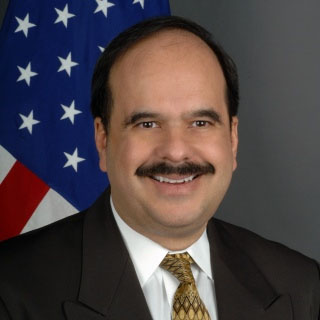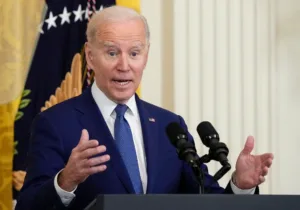Given the alarming trends in the Middle East, America should fashion agile media platforms that influence audiences in the region and—even more importantly—say something compelling.
In 2017 when the Board of the US Agency for Global Media tasked me with remaking US broadcasting in Arabic, the challenge was too irresistible to ignore, particularly at this time of crisis in the region. I was a long-time critic of our past efforts, and it was like giving a kid a new chemistry set and telling him to go ahead and experiment—but in this case the chemistry set cost millions of dollars a year and had almost a thousand employees.
Born after 9/11 because it appeared the US was not communicating well in Arabic and the likes of Al-Jazeera were demonizing America, Middle East Broadcasting Networks (MBN)—which includes Radio Sawa, Al-Hurra television network, and various other platforms—seemingly peaked early and settled into a long inglorious decline into irrelevance. If anything, the pan-Arab media environment became even more fractious and toxic than it was 20 years ago, with additional adversarial streams coming from Russia, Iran, and other authoritarian regimes.
Technically, our output was a problem: poor image quality, old sets, tired graphics, bad connections, mediocre digital presence. But improving the problem’s technical parts, while costly and time-consuming, was relatively easy.
As a viewer and someone who monitored and appeared on pan-Arab media for his job, MBN’s content seemed bland at best, when not counterproductive. It produced nothing unique or distinctive and lacked conviction, passion, identity, and intensity.
Viewership in Iraq, the one place where MBN had an audience for historical reasons, was on a 10-year decline. Elsewhere viewership was also declining or in the single digits. With only four hours of news a day and a news cycle beginning and ending on Eastern Standard Time, it was worse than irrelevant; it was painfully out of sync with the region’s tempo.
How to address these multiple calamities? Fortunately, part of the answer lay in the statutes governing US foreign broadcasting, which outline twin goals of communicating US policy and values, and serving as a surrogate service—“a voice for the voiceless”—in unfree areas. The relatively voiceless in the region are many—religious and ethnic minorities such as Christians, Kurds, and Amazigh (especially when they go against the grain); many Muslims who do not follow the diktats of authoritarian states; free thinkers; reformers. The dominant ideologies of Arabism and Islamism have tended to smother anything outside the norm.
Some US government foreign broadcasters have the first goal of communicating about the United States, and others are supposed to be surrogate services. MBN and Al-Hurra are supposed to be both, communicating a broad spectrum of the American reality and providing space for those who are often silenced in the region.
So the question of identity was set, and we could flesh out how to communicate American values and a distinctive view of the region. We consciously avoided terms that are freighted and devalued in the region, such as democracy and liberal. If we had to describe our agenda, we used words like enlightened, reformist, or truth-telling.
To make this new identity flesh, we launched the most freewheeling online op-ed page of any Arabic language media outlet, with more than 30 columnists from throughout the Arab world and the West, with no redlines or taboo issues.
We canceled most of the tired, old programs and launched new ones built around distinctive personalities or themes. Such programs include people like Joumana Haddad, Ibrahim Issa, Islam al-Buhairi, Sam Tadros, and Ammar Abdul Hamid. The goal of both our columnists and commentary programs is the same: to encourage critical thinking, challenge groupthink (a problem in both the East and West), and break barriers.
We also added a standalone hour-long program that looked at events in Syria with a critical eye, while a weekly investigative news program focused on sensitive topics—the abuse of domestic workers, trafficking of Yezidis after the fall of ISIS, brutality of security services against demonstrators in Sudan and Iraq, and especially, issues related to corruption, including in Iran, Iraq, Lebanon, and Turkey. After one such recent show about corruption in Sunni and Shia religious institutions in Iraq, the government there suspended us for three months.
Adding for the first time an Al-Hurra news bureau in Dubai addressed the issue of newsworthiness. Now we are open on Middle East time and don’t have this nonsense of waiting until Washington opens to decide what to cover. Actual news coverage was expanded from four to 12 hours a day, including a news block for North Africa.
This expanded our ability to do breaking news stories—something beyond the scope of the old Al-Hurra—which means we covered the major issue of 2019 in Arab politics: political unrest, turmoil, and mass demonstrations in Algeria, Sudan, Egypt, Iraq, and Lebanon. Our decision to cover sympathetically the aspirations of people in the street demanding their rights and respect for human dignity led to punitive actions against us by the Sudanese, Egyptian, and Iraqi governments and angry accusations by Iranian proxies in Iraq and Lebanon. We wouldn’t have it any other way.
Other media attacks on us in the past year have been connected to propaganda sites allegedly associated with Iranian and Syrian intelligence services and their so-called “electronic armies” of social media trolls. The notorious head of one of the most important Iranian-controlled militias in Iraq, Asaib Ahl al-Haqq, attacked us by name, blaming us for Iraqi demonstrations and undermining the Popular Mobilization Forces (Hashd al-Shaabi). Another spokesman, this one for fiery cleric Muqtada al-Sadr, recently accused us on Iraqi state television of fabricating, with the help of Hollywood, the killing of demonstrators in Najaf. Activists roundly mocked him.
A fair question must be asked: You are doing all this stuff, making all these changes, but do you have any real evidence that you are making a difference? Aside from important anecdotal evidence of reactions from adversaries, the answer is yes. We relaunched Al-Hurra and our other platforms in November 2018 and then began a round of independent nationwide polling in the region in 2019. The results have been heartening. Growth—admittedly sometimes from a low baseline—has been dramatic in the past year with many new viewers.
In the Palestinian Territories in 2019, MBN outlets combined for 53 percent unduplicated audience. Al-Hurra at 26.6 percent came in well ahead of RT Arabic and BBC Arabic. In Iraq, Al-Hurra jumped from 22.15 percent in 2017 to 37.2 percent in 2019. MBN’s total figures for Iraq were 63.2 percent unduplicated audience. Moreover, 31.9 percent of Al-Hurra’s Iraqi viewers were first-time viewers. Again, this is well ahead of BBC Arabic and RT Arabic.
In Lebanon, Al-Hurra doubled its viewership from 3.3 percent in 2017 to 7.6 percent in 2019. While in Saudi Arabia, it grew from 5.6 percent in 2017 to 8.3 percent in 2019. In Saudi Arabia, a tough market for us, we were still behind Al-Jazeera, RT Arabic, and BBC Arabic. In Morocco, Al-Hurra rose from 4.5 percent in 2016 to 9.8 percent in 2019. To be frank, even if the numbers had not pointed in our favor (and I was not sure they would), what we have done was the right thing to do.
Clearly, there is both real progress and a lot of work to be done. Our reputation and brand cannot be built (or rebuilt) in a year, and we are only a few months past the one-year mark—November 4—of our massive overhaul. This forward momentum is occurring even before we launch a major marketing and rebranding campaign in 2020.
The challenges remain daunting. Qatari and Saudi-owned media outlets are still dominant, and the Russians have carved out an important niche. Iran has an entire global broadcast media coalition (IRTVU) that is particularly active in Arabic. Islamist channels beam poison into the Arab world from new havens in Turkey.
Despite the isolationist rhetoric we hear, the Middle East still matters, for political, religious, and strategic reasons. Having an effective means to communicate in Arabic is even more important today than ever as undaunted masses march in the streets, the region’s fragile diversity and pluralism are in play, sclerotic regimes are shaken, and bad actors aggressively compete for influence and market share in this volatile and crowded media space. Today the battle for the region’s intellectual and ideological future is joined, and we are in the thick of it.
Alberto M. Fernandez is president of Middle East Broadcasting Networks (MBN). The views expressed herein are solely those of the author and do not necessarily reflect the official views of MBN or the US government.







 Sponsor a student for Christianity & National Security 2024
Sponsor a student for Christianity & National Security 2024